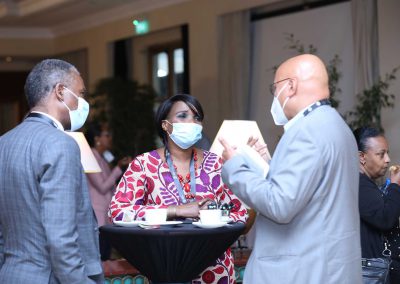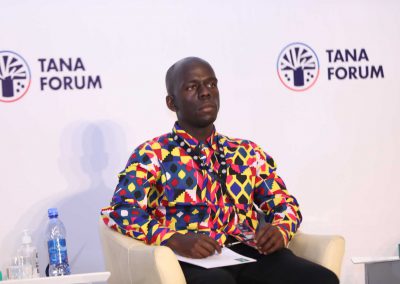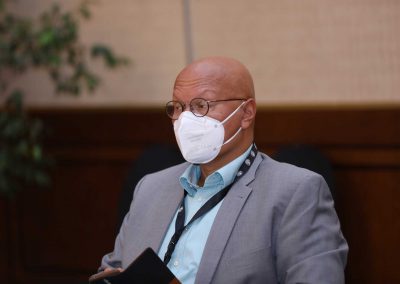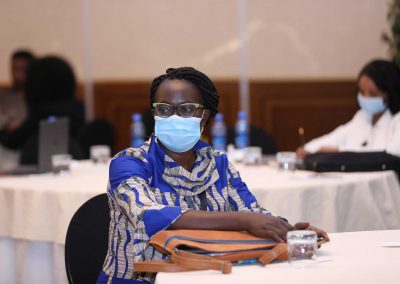Day 4 – THURSDAY, 22 OCTOBER
- SESSION I: Accelerating the AfCFTA in the Context of Global Governance and COVID-19
Panellists:
H.E. Wamkele Mene, Secretary General, African Continental Free Trade Agreement (AfCFTA)
Ms. Berhane Demissie, Managing Partner, Cepheus Capital
Dr. Frannie Leautier, Senior Partner & CEO, South Bridge Investments
Moderator: Dr. Taffere Tesfachew, Former Director, Division for Africa, Least Developed Countries and Special Programmes, UNCTAD
SESSION I Accelerating the AfCFTA in the Context of Global Governance and COVID-19,
- COVID-19 catalyzed trade protectionist policies but Africa is embracing multilateralism and liberalization
- For AfCFTA to work Africa should focus on Industrialization to produce globally competitive goods and services, the free movement of capital and labour is essential as is the rehabilitation and expansion of infrastructure.
- AfCFTA will be initially driven by informal trade, small and medium enterprises. As the hardest hit sectors by COVID-19, they require the highest levels of protection.
- COVID-19 has shown Africa the critical importance of having a strong health system, have an alternative source of supplies, strong regional markets, production capacity, and the importance of value addition of primary commodities, a strong logistics network, and the importance of technology in trade activities.
- The crisis has also created opportunities for Africa. Fragmentation of international markets creates an opportunity to develop the African market and stimulate demand for locally produced goods and services
- African Countries must objectively assess the human capital available to them and structure skills programs to be aligned to the competitive advantage of each country.
- For the AfCFTA to be sustainable risk diversification is critical in the implementation of the agreement. This will be an incentive for FDI inflows into the continent.
- The private sector’s a central role to play in accelerating the implementation of the free trade area agreement. The principal contribution that it can make is scaling upon the level of engagement in order to drive down costs to globally competitive levels
- The government has to step up to its role as an enabler of the agreement, building infrastructure, creating opportunities for the private sector, formulating policy that is fit-for-purpose in the post-pandemic era.
- Intellectuals have a responsibility to prepare the next generation for the AfCFTA by inculcating the idea of Africa and pan Africanism. Learning programs should be re-calibrated to integrate knowledge and skills regarding the unification of Africa.




